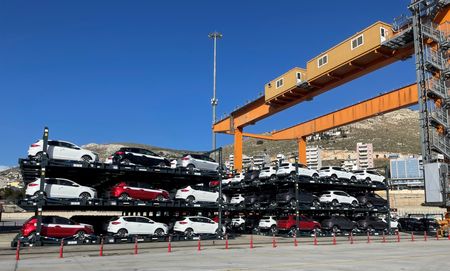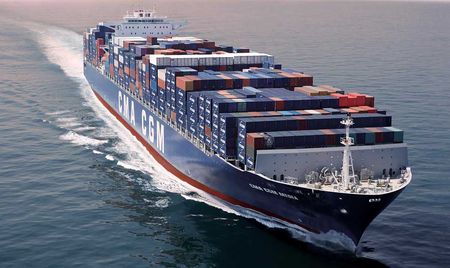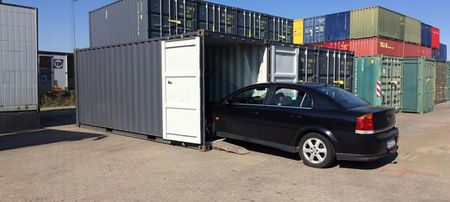Our company Auto4Export is ready to select, purchase and deliver any car you choose from the UAE.
High-quality loading and delivery to your country will be organized by us in the shortest possible time.
Contact our managers and get complete information on any questions you are interested in: - our agents
When it comes to shipping a car from the UAE to Nigeria, collaborating with a reputable car shipping company like Auto4Export ensures a smooth and stress-free process. With nearly 20 years of experience in the field, Auto4Export stands out as one of the best car shipping companies in the UAE. Our user-friendly car shipping website provides a seamless experience, offering top-notch services to meet your shipping needs.
How Much Does it Cost to Ship a Car to Nigeria?
The cost of shipping a car from the UAE to Nigeria can vary significantly based on factors such as the type of vehicle, shipping method, and additional services required. Generally, the basic cost of car shipping overseas from the UAE to Nigeria ranges from $1,000 to $1,500. To get a more precise estimate, it's essential to consider the specific details of your shipment, as these will influence how much car delivery costs. For the most accurate estimated car shipping costs, it's advisable to obtain quotes from multiple shipping companies.
How many days does it take to ship a car from UAE to Nigeria?
The average delivery time for shipping a car from the UAE to Nigeria typically ranges from 15 to 30 days. Factors such as the shipping route, weather conditions, and customs clearance processes can affect how long it takes for cars to ship. To determine how long does car shipping take for a specific vehicle, it's recommended to consult with the shipping company for a more precise timeline. Understanding how long does it take to ship a vehicle helps in planning and managing expectations for the car's arrival.
Departure and Arrival Ports
When shipping a car from the UAE to Nigeria, there are several ports of departure and arrival to consider. In the UAE, common ports of departure include:
- Jebel Ali Port (Dubai)
- Port Khalid (Sharjah)
- Port Rashid (Dubai)
- Port Zayed (Abu Dhabi)
In Nigeria, the main ports of arrival are:
- Lagos Port (Apapa)
- Tin Can Island Port (Lagos)
- Port Harcourt
- Onne Port (Rivers State)
- Calabar Port
Approximate Prices
The cost of shipping a car from the UAE to Nigeria depends on various factors such as the type of vehicle, shipping method (container or roll-on/roll-off), and additional services like insurance and customs handling. Here's a general overview of the costs:
| Port of Departure | Port of Arrival | Shipping Duration | Estimated Cost (USD) |
|---|---|---|---|
| Jebel Ali | Lagos | 15-25 days | $1,000 - $1,500 |
| Port Khalid | Tin Can Island | 20-30 days | $1,200 - $1,700 |
| Port Rashid | Port Harcourt | 15-25 days | $1,100 - $1,600 |
| Port Zayed | Onne Port | 20-30 days | $1,200 - $1,800 |
Additional Considerations
Shipping Method:
Container shipping is typically more expensive than roll-on/roll-off (RoRo) due to the added security and protection for the vehicle.
Insurance:
It's advisable to purchase insurance to cover any potential damages during transit.
Customs Fees:
Be aware of the customs fees and import duties that will be applicable upon arrival in Nigeria.
Conclusion
When planning to ship a car from the UAE to Nigeria, it's crucial to consider the departure and arrival ports, estimated shipping duration, and associated costs. By choosing the right ports and understanding the logistics involved, you can ensure a smooth and efficient shipping process for your vehicle. Always consult with shipping companies for the most accurate quotes and timelines.
Factors of price to ship a car to Nigeria
The cost of shipping a car from the UAE to Nigeria is influenced by several factors, and understanding these elements is crucial for accurate pricing. Here are key considerations:
1. Location in the UAE:
The distance between the vehicle's location in the UAE and the departure port significantly impacts the cost. Shipping from inland locations may involve additional transportation costs.
2. Method of Transportation:
The chosen shipping method, whether RoRo (Roll-On/Roll-Off) or container shipping, affects pricing. RoRo is generally more cost-effective, while container shipping provides extra security but comes at a higher cost.
3. Type of Vehicle:
The size, weight, and dimensions of the vehicle influence the shipping cost. Larger or heavier vehicles may incur higher fees.
4. Additional Services:
Optional services such as door-to-door delivery, insurance, and vehicle inspection contribute to the overall cost.
5. Seasonal Demand:
Shipping costs may vary based on seasonal demand. High-demand periods can lead to increased prices.
6. Customs and Duties:
Import taxes and duties imposed by Nigeria customs authorities should be considered in the overall cost.
Understanding these factors allows for a more accurate estimate of the total cost involved in shipping a car to Nigeria.
How to import a Car in Nigeria from the UAE?
Importing a car from the UAE to Nigeria involves several essential steps to ensure compliance with Nigerian customs regulations. Here’s a brief overview of the process:
- Choose a Shipping Method: Decide between container shipping and roll-on/roll-off (RoRo) based on your budget and the level of protection required for your vehicle.
- Select a Reliable Shipping Company: Research and select a reputable shipping company experienced in handling car shipments from the UAE to Nigeria.
- Prepare Necessary Documents: Gather all required documents to facilitate a smooth customs clearance process upon arrival in Nigeria.
Necessary Documents
Bill of Lading: Provided by the shipping company, detailing the shipment and vehicle information.
Purchase Invoice: Proof of purchase showing the price, date, and seller’s information.
Vehicle Registration Documents: Original vehicle registration and ownership documents.
Insurance Certificate: Proof of insurance coverage during transit.
Export Certificate: Obtained from UAE authorities to permit the export of the vehicle.
Residence Permit (for non-Nigerians): If applicable, proof of residency in Nigeria.
Customs Form (Form M): Pre-arrival assessment report form required by Nigerian Customs.
Final Steps
Upon the car’s arrival in Nigeria, you will need to:
1. Pay Import Duties and Taxes: Duties, taxes, and other fees must be settled with Nigerian Customs.
2. Complete Customs Clearance: Submit all necessary documents and undergo inspection by customs officials.
3. Register the Vehicle: Register your vehicle with the Nigerian Federal Road Safety Corps (FRSC) to obtain Nigerian license plates and registration.
To ensure a hassle-free import process, it is advisable to contact Nigeria Customs directly to obtain the most up-to-date information on regulations, fees, and procedures.
What year can a car be shipped to Nigeria?
In Nigeria, cars older than 15 years from their manufacturing date are not permitted to be imported. This regulation ensures that vehicles adhere to environmental and safety standards. Here’s a concise guide on the permissible age for shipping a car from the UAE to Nigeria:
Permissible Age Limit: Cars must be 15 years old or newer from the date of manufacture.
Key Points to Remember
Manufacturing Date: Ensure the car’s manufacturing date is within the last 15 years.
Documentation: Verify the age through the car’s registration documents and manufacturing certificate.
Before shipping, always confirm the most current regulations with Nigerian Customs to ensure compliance and avoid any potential issues upon arrival.
Shipping Method for Shipping a Car to Nigeria
When considering shipping a car from the UAE to the Nigeria, various shipping methods are available, each with its own set of advantages and disadvantages. Here's an overview focusing on RoRo (Roll On/Roll Off) shipping, shared container shipping, and exclusive container shipping:
RoRo (Roll On/Roll Off) Shipping:
Advantages:
- Cost-Effective: RoRo shipping is often more budget-friendly than container shipping.
- Efficiency: Quick loading and unloading of vehicles as they are driven onto and off the ship.
- Ideal for Running Vehicles: Well-suited for operable cars.
Disadvantages:
- Exposure to Elements: Vehicles are exposed to weather conditions during the transit.
- Restrictions on Personal Items: Typically, personal items are not allowed inside the vehicle.
Shared Container Shipping:
Advantages:
- Cost Savings: Sharing a container reduces individual shipping costs.
- Enclosed Space: Vehicles are placed within a shared container, providing some protection.
Disadvantages:
- Potential Delays: Coordination among multiple shippers may lead to delays.
- Space Limitations: Shared containers may have restrictions on vehicle size and type.
Exclusive Container Shipping:
Advantages:
- Enhanced Protection: Vehicles are enclosed within an exclusive container, offering better protection.
- Personal Items Allowed: Allows for the shipment of personal items along with the vehicle.
Disadvantages:
- Higher Cost: Exclusive container shipping is generally more expensive than other methods.
- Loading/Unloading Time: Loading and unloading exclusive containers may take more time.
Comparison:
|
Aspect |
RoRo Shipping |
Shared Container Shipping |
Exclusive Container Shipping |
|---|---|---|---|
|
Cost |
Lower |
Moderate |
Higher |
|
Security |
Basic |
Moderate |
High |
|
Loading/Unloading Time |
Quick |
Longer |
Moderate |
|
Flexibility |
Limited to operable |
Limited by group sharing |
High |
|
Protection |
Limited exposure |
Shared space |
Dedicated space |
Choosing the right method depends on factors like budget, vehicle condition, and personal preferences. Ensure to evaluate these aspects to make an informed decision.
Top 10 most imported vehicles in Nigeria in 2023.
In 2023, the top 10 most imported vehicles to Nigeria from the UAE included:
- Toyota Camry
- Toyota Corolla
- Toyota Hilux
- Toyota Land Cruiser
- Honda Accord
- Mercedes-Benz E-Class
- Lexus RX
- Nissan Altima
- Ford Explorer
- Hyundai Elantra
These vehicles dominated the import market due to factors such as reliability, fuel efficiency, and popularity among Nigerian consumers.















